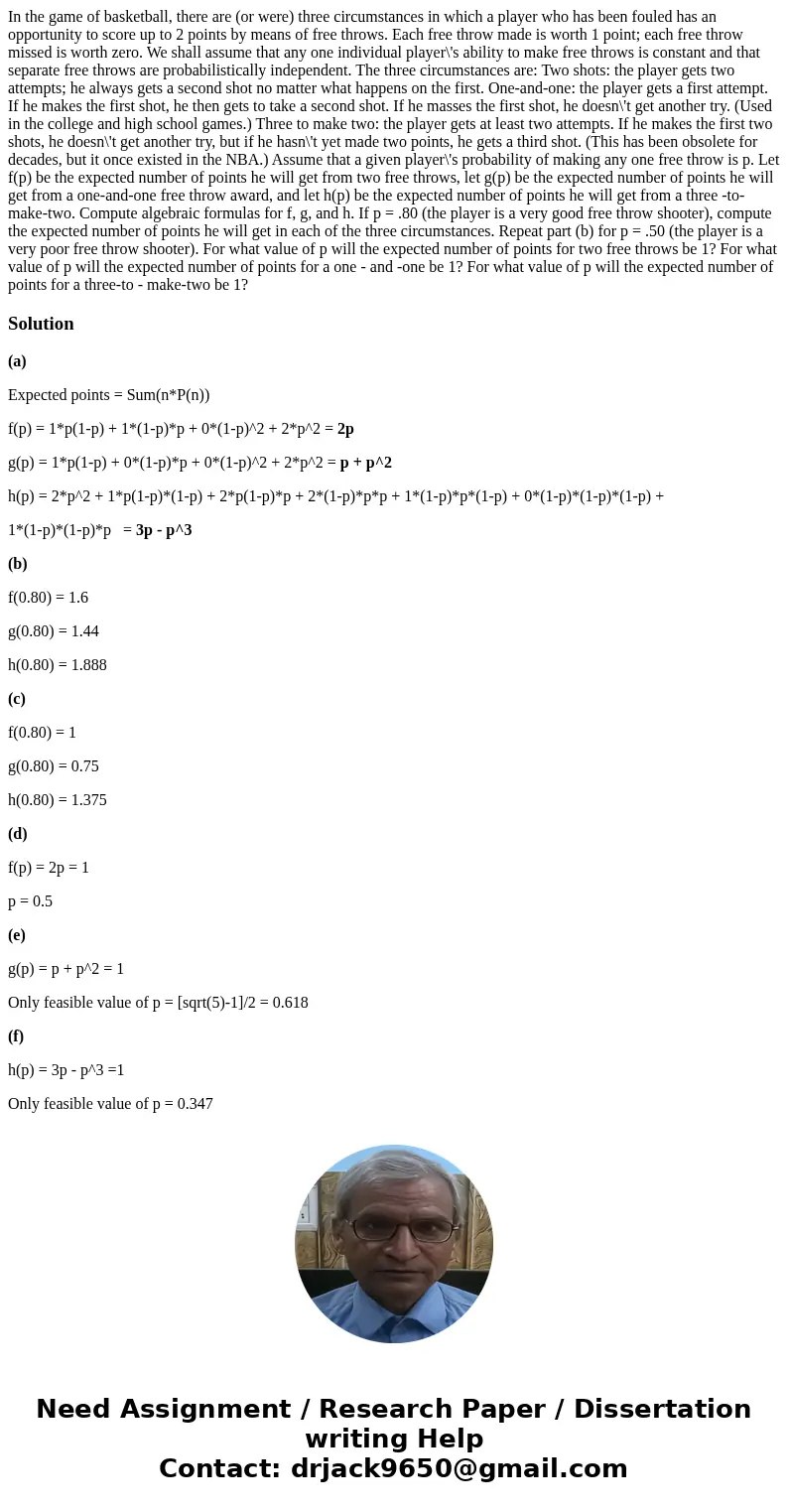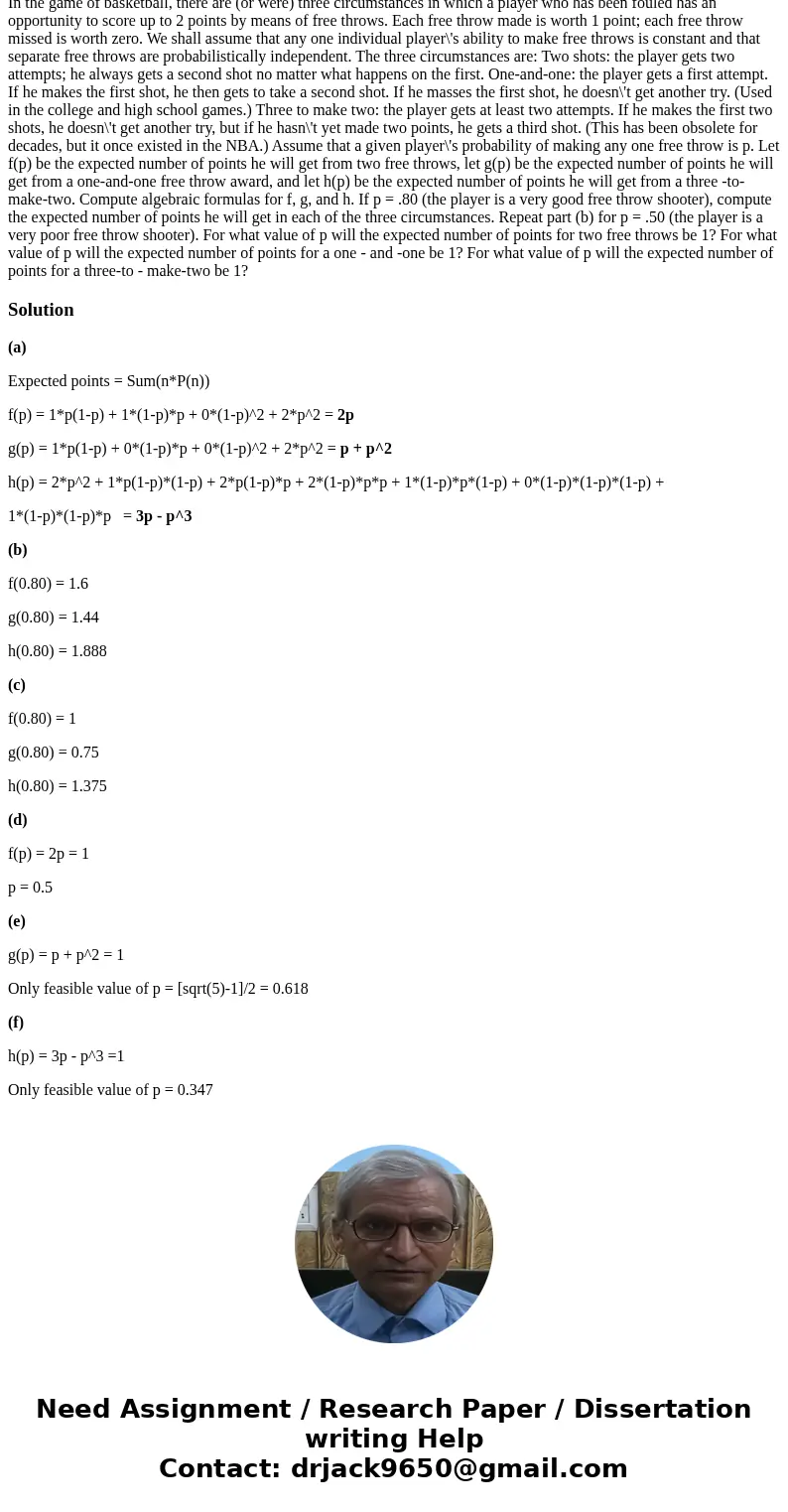In the game of basketball there are or were three circumstan
In the game of basketball, there are (or were) three circumstances in which a player who has been fouled has an opportunity to score up to 2 points by means of free throws. Each free throw made is worth 1 point; each free throw missed is worth zero. We shall assume that any one individual player\'s ability to make free throws is constant and that separate free throws are probabilistically independent. The three circumstances are: Two shots: the player gets two attempts; he always gets a second shot no matter what happens on the first. One-and-one: the player gets a first attempt. If he makes the first shot, he then gets to take a second shot. If he masses the first shot, he doesn\'t get another try. (Used in the college and high school games.) Three to make two: the player gets at least two attempts. If he makes the first two shots, he doesn\'t get another try, but if he hasn\'t yet made two points, he gets a third shot. (This has been obsolete for decades, but it once existed in the NBA.) Assume that a given player\'s probability of making any one free throw is p. Let f(p) be the expected number of points he will get from two free throws, let g(p) be the expected number of points he will get from a one-and-one free throw award, and let h(p) be the expected number of points he will get from a three -to-make-two. Compute algebraic formulas for f, g, and h. If p = .80 (the player is a very good free throw shooter), compute the expected number of points he will get in each of the three circumstances. Repeat part (b) for p = .50 (the player is a very poor free throw shooter). For what value of p will the expected number of points for two free throws be 1? For what value of p will the expected number of points for a one - and -one be 1? For what value of p will the expected number of points for a three-to - make-two be 1?

Solution
(a)
Expected points = Sum(n*P(n))
f(p) = 1*p(1-p) + 1*(1-p)*p + 0*(1-p)^2 + 2*p^2 = 2p
g(p) = 1*p(1-p) + 0*(1-p)*p + 0*(1-p)^2 + 2*p^2 = p + p^2
h(p) = 2*p^2 + 1*p(1-p)*(1-p) + 2*p(1-p)*p + 2*(1-p)*p*p + 1*(1-p)*p*(1-p) + 0*(1-p)*(1-p)*(1-p) +
1*(1-p)*(1-p)*p = 3p - p^3
(b)
f(0.80) = 1.6
g(0.80) = 1.44
h(0.80) = 1.888
(c)
f(0.80) = 1
g(0.80) = 0.75
h(0.80) = 1.375
(d)
f(p) = 2p = 1
p = 0.5
(e)
g(p) = p + p^2 = 1
Only feasible value of p = [sqrt(5)-1]/2 = 0.618
(f)
h(p) = 3p - p^3 =1
Only feasible value of p = 0.347


 Homework Sourse
Homework Sourse